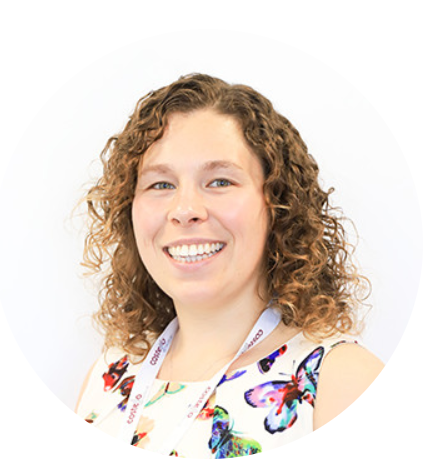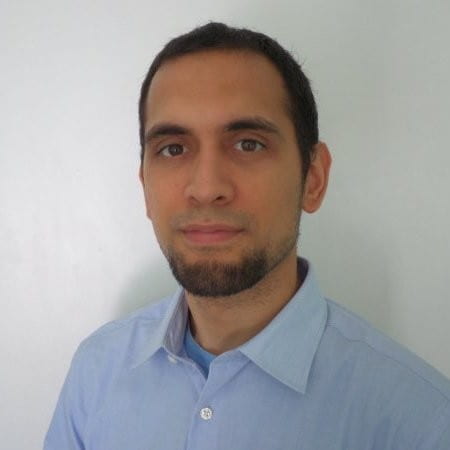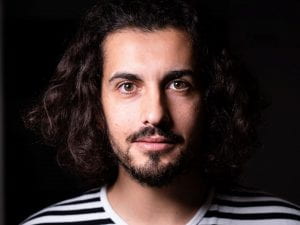 Dr Keith O’Brien earned his PhD in Experimental Psychology from UCL, and now works as the Global Behavioral Insights Lead for Simply Business. Keith kindly spoke to us about his role and his transition into industry.
Dr Keith O’Brien earned his PhD in Experimental Psychology from UCL, and now works as the Global Behavioral Insights Lead for Simply Business. Keith kindly spoke to us about his role and his transition into industry.
Tell us about your job.
I am the Global Behavioural Insights Lead for a growing technology company called Simply Business (SB). Simply Business is an insurance broker with over 750,000 current customers in the UK. We have over 750 employees across offices in London, Northampton, and Boston (US). Our success to date has been a result of simplifying the insurance market for SMEs, (small businesses) helping customers find and buy the right insurance easily, with a strong focus on data-led experimentation. If you use price comparison websites in the UK to find insurance for a business (maybe your ‘side-hustle’) you are probably using our service.
My role sits officially in our ‘Digital Product’ organisation, which spans across teams in the UK and USA, reporting directly to our C-suite team (i.e. the Chief Product Officer). As our ‘in-house’ behavioural scientist, my role is to identify (and argue for) improvements to our organisation and products based on behavioural science/economics. This sometimes requires running ‘experiments’, which can range from quick pilots (or prototype tests) with customers (to test ideas/assumptions), to ‘lab-style’ studies (controlled experiments), to ‘scaled-up’ RCTs or ‘A/B tests’ with real-life customers.
While that all sounds very serious and rigorous, and it can be, if you visited our offices you might be surprised to see us all in jeans and t-shirts – playing a game of pool or table tennis in our open-plan offices. Or building some strange robots, like a guitar-operated drone. We pride ourselves on creating a place where we enjoy working – and we’ve experimented with new initiatives like ‘4-day work-weeks’, flexi/remote-working far before anyone else (or COVID19). Our unofficial motto is ‘Build Something Better’, and that includes in society; which is why we have been a certified ‘BCorp’ for the last 3 years due to our actions on climate change, racism, inequality, etc..
How did you move from academia to your current role?
I handed in my PhD in 2016 since joining UCL through the MSc in Cognitive & Decision-Sciences. In 2017, I was balancing teaching fellowships at UCL and LSE in psychology/decision-sciences and being the Assistant Director of the Centre for Behaviour Change at UCL. At the time I was trying to square my passion for understanding human behaviour, with applying that knowledge to tangibly improve people’s lives. Teaching was an outlet for that passion, a buffer against the reality that academia is rarely supportive or enabled to do real-world research.
I came to the realisation that the career I dreamed about, spending my days developing experiments and RCTs to improve people’s lives with psychology, was: a) about 20-30 years away, provided I landed a tenured professorship with ample funding; and b) highly improbable, if I insisted my path to that professorship would be via real-world (non-lab) research. I took a leaf from my MSc in Cognitive & Decision Sciences, and rather than calculate some Expected Value estimates of leaving academia vs staying, I tallied up the pros/cons. Written on paper, it was clear I’d be happier overall to leave.
I was headhunted for my role at Simply Business by a fellow academic who consulted for private industry, and knew more companies were eager to apply behavioural science. I took the role gladly, being promised (literally), “you’ll get to think up interesting experiments to run to improve our organisation”. The left-wing firebrand in me never considered working in the financial services sector, let alone insurance (the least ‘sexy’ of the financial services). Yet I discovered insurance is a rich place for applying behavioural science. Insurance is founded on the concepts of risk and probability, requires decision-making under uncertainty and limited information, and ultimately is incentivised to make people safer (i.e. healthier, drive safety, etc.) – if only to improve the profit margins at least.
My key piece of advice for making yourself appear suitable to employers, is to: a) learn how your skills and expertise addresses their challenges in simple language; and b) explain clearly how you would go about actually doing the work. Too many behavioural scientists in interviews (not just graduates) are clearly gifted in what they do, but are unprepared to show how they would work with other people and teams to get it done.
Businesses want to know how you’d explain your role/approach to others in the business who have no idea what or why you do things in a certain way. They want to know how you’d demonstrate investing time/money/effort in something isn’t just to satisfy your ‘academic’ curiosity, but to satisfy often competing priorities of the business and people. For example, balancing business revenue, employee/customer satisfaction, etc. If you are convinced this would make a difference, how could you ‘create buy in’ for your idea? In academia we often convince others after we conduct the research, but in the private/public sectors you need to convince people before it.
What does a normal working day look like for you?
During these COVID19 times, I would want to tell you that I wake at 7am to prepare for a day in the City of London…but that is not to be. However, I do enjoy that remote working lets me have a lie-in and savour a morning coffee. I start work around 9am, logging onto Slack to greet our team and check what updates might have come through from our US team overnight.
I’ve an unusual luxury, hard earned, of having 9am-12pm most days dedicated to ‘deep working’. This is a time where people are not supposed to add meetings to my diary or distract me. During this time I work on designing experiments, or analysing data; or reviewing proposals from different parts of the business (e.g. Product teams or HR) to ensure they are addressing/changing customer/employee behaviours in the right way.
12pm-1pm, meetings will start to pop-up. I spend 2xhours a week mentoring people internally and externally (e.g. MSc students from UCL) in behavioural science. 1pm-2pm is lunchtime, or a group trip to the gym – provided by our work benefits scheme.
2pm-5.30pm is when the US ‘wakes up’. I’ll have a variety of meetings with teams from across Product, HR, and our operations teams, on the projects we are running to improve or completely redesign our services, products, or potentially our business strategy. Often this results in discrete research projects for our research (or ‘Insight’) teams, and I’ll collaborate with our Data Science/User Research teams to determine the best approach to get the right answers.
5.30 is where I’d normally ‘log off’, or jump on a Zoom call to do Yoga with some co-workers. There are times where the US offices will need some input (they are ~5 hours behind), but rarely this goes past 7pm. On Fridays, I dedicate 2 hours in the afternoon to self-directed learning, which could be upskilling in SQL/Python or reading academic journals or industry reports.
What are the best bits?
Working with a diverse group of colleagues, spanning multiple disciplines, and constantly being challenged to come up with ideas and solutions that are both a) realistic to implement but also b) based on scientific understanding and methods. It is enriching to work with designers, product managers, data scientists, user researchers, HR representatives, and senior leadership figures from the UK and the USA.
Co-creating ideas, with a team, to impact something tangible – while sticking to the core value of improving customer’s lives – that is what keeps me going. Every day is different – while writing this I’m submitting ideas on how to change both insurers and customer behaviour to be more environmentally sustainable in their choices and supply chains.
What are the biggest challenges?
Prioritisation of ‘what is important’, and being (more) reliant on others to get the work/research done. When I started my role I created a massive list of ideas and experiments – as there were hundreds of optimizations or improvements I could see through the lens of behavioural science, on both the customer and employee sides. Prioritising was hard, especially if something I believed was important wasn’t immediately clear to others. It is a skill, one I’m better at now. I also focus on more transformative pieces of work than ‘simple tweaks’ (e.g. how do create a product that improves customer decision-making; how do we create a system to improve employee wellbeing & performance?). Every week requires me to re-examine requests from teams, existing work in progress, timelines, and make decisions as to what is the most ‘valuable’ thing to work on.
A strange challenge I found was the reliance on others. As an academic, you get to be almost entirely self-reliant, self-directed, and you need to pick up nearly all the skills you need to conduct a piece of work yourself. You are the sole driver of your work, career, and success. In my role, your success is more reliant on others. If I need to access some data, I could either learn SQL and Python (which I did), or wait for our Data team to get what I needed. If I want to launch an RCT on our websites, I need to work with Product Teams and software engineers to both convince them it’s worthwhile and actually make it happen. You learn the invaluable ‘soft-skills’ of how to explain to others why your ideas are important, valuable, and can help them reach their goals etc. If Robert Cialdini was reading, he would say you learn the art of influence.
Some things can happen in days; other times it can take days, months, or even years. For example, a simple ‘presentation-order’ test on our prices has been in a ‘backlog’ for 3 years, but we designed and implemented a trial for employees around a 4-Day Working Week in a few weeks. That is reality for you!
There are positives to relying on others. More people involved means more input on what you want to do, how best to do it, and more support to get it done. We share in both success, and ‘failure’. Feeling ‘part of a team’ is something academia really fails at, while in good workplaces it is key to success.
Is a PhD essential?
I get asked this question about once a week by graduates and those already in the workplace looking to ‘upskill’ into a pure behavioural science role. So I’ll disappoint you like I do them: it depends!
A PhD is a great signal to prospective employers about all the right things a PhD gives you: critical thinking and the ability to research, absorb and communicate information quickly and simply. If you do a science-based PhD, chances are you have learned how to think about the world and construct testable hypotheses to go (dis)prove, and some data analytical skills. You also are self-motivated and self-directed, with a deep understanding of a subject area. In short, you’ve proven you can excel given time, resources, and a clear goal. What employer wouldn’t love that?
Yet, a lot of people who have similar (and better!) roles to me hold an MSc, not a PhD. Some do not personally carry out data analysis/experimental research, but instead coordinate teams of behavioural scientists who have more research-driven roles. Some are more consultancy-based, versus data-analytical. What nearly all these have in common is ‘relevant experience’ – which is a silly industry term for having worked in a job that isn’t academia for a period of time.
For me, I use the critical thinking and communication skills I learned in my PhD to show the logic to my ideas and create ‘buy-in’; the experimental design skills to design/help teams build their tests the right way to measure the right thing; and sometimes my data skills to get/analyse/build models with our own data. And finally, PhDs are amazing at reading giant swathes of information, digesting, critiquing, summarizing, and generating recommendations in a clear manner (think of all those Introduction sections you’ve done). I turn around ‘rapid reviews’ on research or reports at a pace that baffles some of my colleagues – but any PhD can do it.
What’s the progression like?
The industry has completely changed in the last 5 years, and is continuing to evolve. In 2014 there were a handful of behavioural science units/teams/companies in the world, and graduates struggled to find a job opening. In 2017 there were over 202 behavioural science units in public-policy globally. In 2020, there are estimated to be over 650 teams globally, across various sectors. Roles are diversifying, like: ‘behavioural designers’, ‘behavioural scientists’, ‘behavioural marketers’, etc.
Until about 2016 there were no real careers to progress in, no different ‘career-levels’ of behavioural scientists. Now, in the public sector for example, you have Directors of Behavioural Science (such as Dr Laura de Moliere at the Cabinet Office), and Senior/Junior Behavioural Insights Associates. There are Chief Behavioural Officers in various industries (e.g. financial services, marketing, HR, consultancy), who coordinate a mix of insights and/or behavioural science teams. There are more ‘Head of Behaviour Science’ positions being created every day, indicating more roles are forming under them.
Progression at the junior/senior associate levels can be relatively quick, industry dependent, and easier if the team(s) are more established. This is where having a PhD might actually be a benefit, as they tend to accelerate up the career ladder faster and level out when reaching management level.
Personally, I am looking to move into a ‘Head of’ position, and managing a full behavioural science unit. Our parent company in the US is looking to hire behavioural scientists to work at all levels, so I hope to help them build their team there.
I would love to be a Chief Behavioural Science Officer someday, but I think there is a long way to go before the position is common in companies. A CBO role reflects companies’ acceptance of data-driven experimentation and the use of scientific knowledge to understand and change behaviour; or at least the aim to get there. We are still in a world where experimentation is scary for most, so it’s easier to do something without making sure it works. Other companies think they do experimentation well, but often have a highly fragmented approach to doing it well: one team could be off using AI to predict the best people to hire, while another team is struggling to understand why sample size matters.
What are your top tips for our researchers?
Reach out to people through your networks, or on LinkedIn. People like me love to help aspiring behavioural scientists, and we are all finding our way in this new field together. Offer them a coffee (classic persuasion psychology here) if Lockdown is lifted. Ask if you could shadow them, or if you could do a more formalised internship (even if for a few hours a week). Or if they’ve got any bits of work you could support pro bono (you might find they’ll try to reward you somehow).
You should try to get experience of conducting a project for a non-academic organisation as soon as possible. This doesn’t have to be an experiment – you can easily find organisations who are looking for a literature review and recommendations, which is something most MSc students and PhDs can do in a matter of weeks. The key bit here is recommendations, something that is actionable.
Organisations appreciate the in-depth material to refer to, and often expect it (typically because they want to show what they are paying for), but they really just want to know what they are actually supposed to be doing with it. If you always force yourself to think of providing recommendations, you’ll naturally start thinking about the company, the context of the research, what is the most important/least important thing you’ve found that is relevant to them. If you do this, you’ll be 90% of the way there on the skills you’ll need in any organisation – and you’ll be able to build a portfolio of examples where you’ve applied academic research to practical real-world issues.
Feel free to reach out to me on LinkedIn, I’m happy to talk to people and I offer the odd mentorship to help people in early-stage careers or those considering moves (so far, all have been successful).
Welcome to you, our new ‘prac-ademic’!

 Close
Close



 Dr Ardavan Alamir has a PhD in Physics and now works in cyber-security at G-Research. We caught up with Ardavan to hear about his role and career journey so far.
Dr Ardavan Alamir has a PhD in Physics and now works in cyber-security at G-Research. We caught up with Ardavan to hear about his role and career journey so far. Dr Keith O’Brien earned his PhD in Experimental Psychology from UCL, and now works as the Global Behavioral Insights Lead for Simply Business. Keith kindly spoke to us about his role and his transition into industry.
Dr Keith O’Brien earned his PhD in Experimental Psychology from UCL, and now works as the Global Behavioral Insights Lead for Simply Business. Keith kindly spoke to us about his role and his transition into industry.



